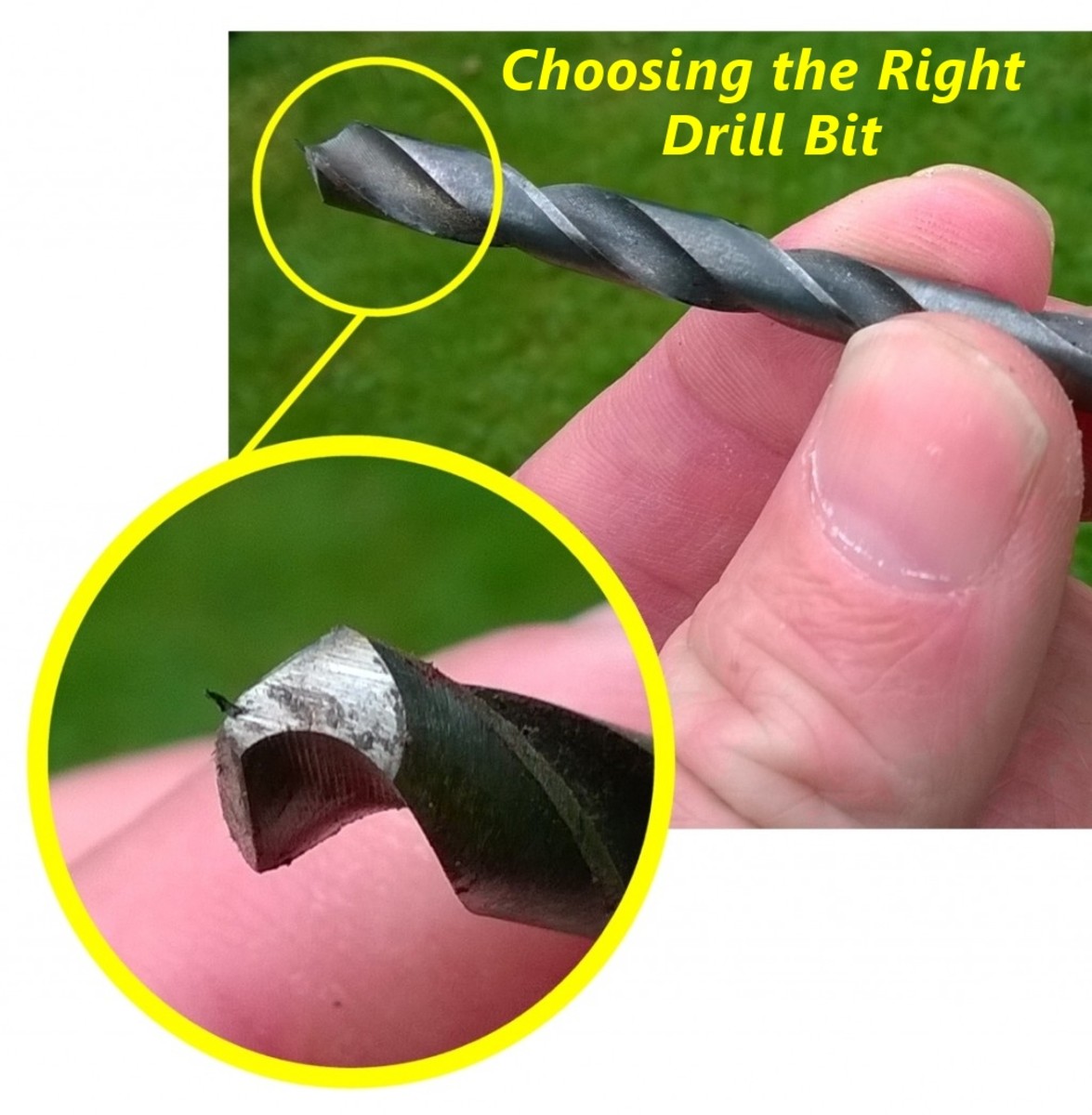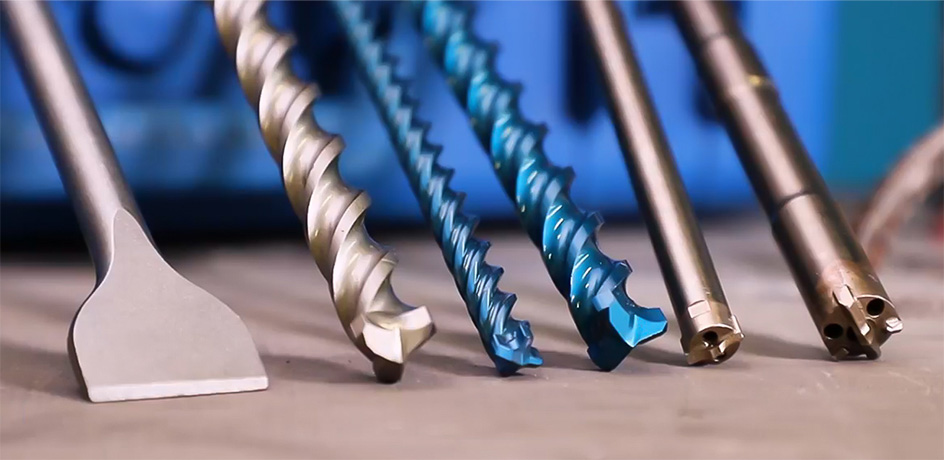To choose the right cordless drill bits for various materials, prioritize the material’s hardness and select the appropriate bit that matches its requirements. By considering the hardness of the material, you can ensure that the drill bit you choose will provide optimal performance and efficient drilling.
Selecting the correct cordless drill bits is essential for both professionals and DIY enthusiasts who work with different materials. Whether you are working with wood, metal, or masonry, using the right drill bit can make a significant difference in the outcome of your project.
However, with numerous options available in the market, it can be overwhelming to determine which drill bits are suitable for various materials. We will guide you through the process of choosing the right cordless drill bits by focusing on the hardness of the material and selecting the appropriate bit accordingly. By following these guidelines, you can ensure precise drilling and avoid damage to both the material and the drill.
Understanding The Different Types Of Drill Bits
Choosing the right cordless drill bits for various materials is essential to ensure efficient and precise drilling. Understanding the different types of drill bits available can help you make an informed decision.
Twist Drill Bits: These are the most common and versatile types of drill bits. They have a helical groove and are suitable for drilling holes in wood, plastic, and metal.
Masonry Drill Bits: Designed specifically for drilling into masonry, such as brick, concrete, and stone. These bits have a carbide tip for effective drilling and should be used with a hammer drill.
Spade Drill Bits: Also known as paddle bits, these are used for drilling large, flat-bottomed holes in wood. They are great for creating holes for plumbing pipes and electrical wires.
Forstner Drill Bits: These bits are ideal for drilling clean, flat-bottomed holes in wood. They are commonly used for woodworking projects and are available in various sizes.
Hole Saw Drill Bits: Used for cutting large holes in wood, plastic, and thin metal. These bits consist of a circular saw blade with teeth and are attached to an arbor.
Factors To Consider When Choosing Drill Bits
Choosing the right cordless drill bits involves several important factors to ensure optimal performance and efficiency. One crucial consideration is material compatibility. Different materials require specific types of drill bits with varying capabilities to achieve optimal results. It is essential to determine the type of material you will be working with before selecting drill bits.
Another factor to consider is the drill bit size. The size should match the requirements of your project, as using an incorrect size may result in ineffective drilling or damage to the materials. Additionally, the shank type of the drill bit should be suitable for your drill’s chuck design to ensure a secure fit and minimize the risk of slippage during operation.
The flute design is also important, as it affects chip evacuation and heat dissipation during drilling. Different flute designs are more suitable for specific materials, such as spiraled flutes for rapid chip removal in softer materials and straight flutes for hard materials requiring slower drilling speeds. Lastly, considering the coating type is crucial, as coatings can enhance the durability, lubrication, and heat resistance of drill bits, improving their overall performance.
Recommended Drill Bits For Wood
Recommended Drill Bits for Wood
When choosing cordless drill bits for wood, there are a few options you can consider. Brad point drill bits are ideal for creating clean and precise holes in wood. With their sharp center point and spurs on the sides, they provide accurate drilling without splintering the wood. Another type of drill bit to consider is the auger drill bit. These bits are designed for deep-hole drilling and are capable of quickly removing wood chips as they cut through the material. Lastly, countersink drill bits are useful for creating recessed holes that accommodate screws or nails. They often feature an adjustable depth stop to control the depth of the countersink. When choosing drill bits for wood, ensure they are compatible with your cordless drill and the type of wood you will be working with.
Tips For Using Drill Bits In Woodworking
When it comes to choosing the right cordless drill bits for various materials, there are a few important factors to consider. In woodworking, using drill bits correctly is crucial for achieving clean and accurate results. One important tip is to pre-drill before inserting screws or nails into wood. This helps to prevent splitting and ensures a secure hold. Another tip is to avoid tear-out, which is when the wood splinters or chips as the drill bit exits the material. To minimize tear-out, it is crucial to use sharp drill bits and to drill slowly and steadily, letting the bit do the work. Finally, speed and pressure also play a role in woodworking. It is recommended to use a slower speed when drilling through wood to avoid overheating the bit and to apply gentle and consistent pressure to maintain control.
Recommended Drill Bits For Masonry
When it comes to choosing the right cordless drill bits for various materials, it is important to consider the specific needs of the project. For masonry work, there are a few recommended drill bits that can help you achieve the best results.
Carbide Tipped Drill Bits: These drill bits are designed to drill into hard materials like concrete and stone. The carbide tip provides added durability and strength, allowing the bit to penetrate the surface smoothly.
Hammer Drill Bits: Hammer drill bits are specifically designed for use with hammer drills, which deliver a pulsating action to help break through tough materials. These bits are great for drilling into masonry as they can provide greater impact force.
Tile Drill Bits: If you are working on a tile project, such as installing ceramic or porcelain tiles, it is important to use tile drill bits. These bits have a spear-shaped tip that allows for clean and precise drilling without damaging the delicate tile surface.
By using the right cordless drill bits for masonry, such as carbide tipped drill bits, hammer drill bits, and tile drill bits, you can ensure that your drilling tasks are efficient and successful.
Tips For Using Drill Bits In Masonry
- Handling Dust and Debris: When drilling into masonry, it is essential to take necessary precautions to handle the dust and debris produced. Always wear protective gear such as safety goggles, a dust mask, and gloves. Additionally, consider using a dust extraction system or a vacuum attachment to minimize the mess.
- Gradual Drilling: Masonry materials are often tougher and more brittle than other surfaces. To ensure clean and precise holes, it is recommended to start drilling at a lower speed and gradually increase it. This technique prevents the drill bit from getting stuck or cracking the material.
Recommended Drill Bits For Metal
Discover the best drill bits for metal and learn how to choose the right cordless drill bits for various materials. Simplify your tasks with reliable, high-quality tools that ensure precision and efficiency.
High-Speed Steel Drill Bits:
High-speed steel drill bits are a popular choice for drilling through metal. They are strong and can withstand high temperatures, making them ideal for tough materials like stainless steel and cast iron.
Cobalt Drill Bits:
Cobalt drill bits are known for their durability and heat resistance. They are designed to withstand high-speed drilling and are ideal for drilling through hard metals such as stainless steel and titanium.
Titanium Drill Bits:
Titanium drill bits have a coating that helps reduce friction and heat buildup, making them ideal for drilling through softer metals like aluminum. They are also known for their long-lasting performance and ability to drill through multiple materials.
Overall, when choosing the right cordless drill bits for metal, it’s important to consider the type of metal you are working with and the specific drilling requirements. High-speed steel, cobalt, and titanium drill bits are all excellent options depending on the material and drilling needs at hand.
Tips For Using Drill Bits In Metal
Discover the keys to selecting the perfect cordless drill bits for different materials. This comprehensive guide provides essential tips for effectively using drill bits in metal, ensuring successful and precise drilling every time.
| Tips for Using Drill Bits in Metal |
| Lubrication |
|
| Reducing Heat and Friction |
|
| Proper Speed and Pressure |
|

Credit: dengarden.com
Frequently Asked Questions For How To Choose The Right Cordless Drill Bits For Various Materials?
What Are The Different Types Of Drill Bits For Different Materials?
There are several types of drill bits available for different materials, including wood, metal, concrete, and tile. For wood, use brad point or spur point bits. HSS or cobalt drill bits are suitable for drilling metal. Masonry bits are designed for drilling into concrete, while tile bits are used for drilling into ceramic tiles.
How Do I Choose The Right Drill Bit Size For My Project?
To choose the right drill bit size, consider the diameter of the hole you need to drill. Measure the diameter of the anchor or screw you will use and choose a drill bit that matches that size. It’s always better to go slightly smaller and gradually enlarge the hole as needed.
Can I Use The Same Drill Bit For Different Materials?
While some universal drill bits can work on multiple materials, it is best to choose a specialized drill bit for each material. Material-specific drill bits provide better results by considering the unique properties of the material and offering optimal performance and durability.
Using the right drill bit for each material extends the tool’s life and ensures clean and precise drilling.
Conclusion
To wrap up, choosing the right cordless drill bits for different materials is crucial for the success of your projects. By considering factors such as material type, drill bit composition, and size, you can ensure optimal results. Remember to also prioritize safety and invest in high-quality bits from reputable brands.
By following these guidelines, you’ll be well-equipped to handle any drilling task with ease and efficiency.

